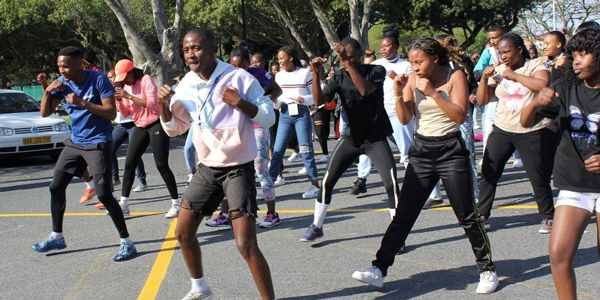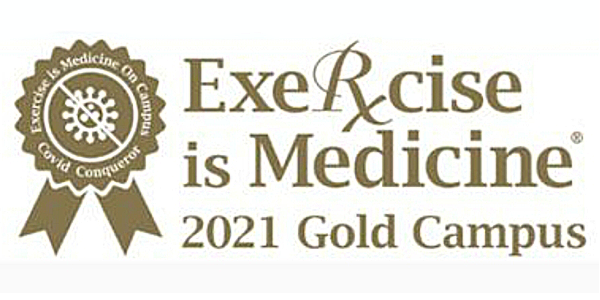Global Alliance for the Promotion of Physical Activity
- Wits University
Declaration for science-based actions to benefit athletes and active individuals of all ages and abilities.

The Department of Exercise Science and Sports Medicine (DESSM) at Wits is a signatory to the 2025 Hamburg Declaration on Sport, Health, and Human Performance.
The Declaration brings together a powerful coalition of sports medicine, public health, academic, athlete-representation, and policy organisations in a shared commitment to safeguard health, promote inclusivity, and support sustainable human performance across all levels of sport and physical activity.
Alliance gets moving
Professor Demitri Constantinou, in the Department of Exercise Science and Sports Medicine at Wits, signed the Declaration on 27 June 2025 during Global Alliance Day at the International Sport and Exercise Medicine Summit.
Constantinou signed the declaration on behalf of his Department; Exercise Is Medicine® SA;, the South African Sports Medicine Association; and the International Federation of Sports Medicine (FIMS) Steering Group of International Collaborating Centres of Sports Medicine, which he chairs. He also chairs the FIMS Education Commission.
 signs Global Alliance to promote physical activity600x300 (002).jpg)
Through the Global Alliance for the Promotion of Physical Activity, FIMS will support implementation in collaboration with all partner organisations that endorsed the Declaration.
“Signing the Declaration is important because we all face the same global burden of inactivity adding to the increase in noncommunicable diseases, especially obesity, diabetes and cardiovascular disease,” says Constantinou. “The risk of these and other conditions like some cancers and dementia are all reduced by meeting the physical activity guidelines of the World Health Organization.”
Sedentary South Africans
Constantinou was an invited speaker to the International Sport and Exercise Medicine Summit, where the Declaration was signed. He presented on the topic of Exercise Promotion in South Africa: Challenges and Opportunities.
“In South Africa particularly, we have additional barriers to physical activity such as some cultural beliefs, poor access to facilities, financial constraints, and our built environment, for example, safe parks, sidewalks, running and cycle lanes,” says Constantinou. “This is why it’s important that we at Wits University who are involved in sports medicine and exercise science teaching, research, and services, together with partners and collaborators, promote physical activity.”
Exercise is medicine
The Department of Exercise Science and Sports Medicine in the Faculty of Health Sciences at Wits teaches students in various disciplines the importance of physical activity and how to promote it effectively. The Department is an accredited FIMS Collaborating Centre of Sports Medicine.
Through the Department, Wits is a gold-status Exercise is Medicine on Campus™-recognised University for its promotion of health and physical activity, executed through a Faculty Wellness Committee and departmental activities. The Department is also starting to collaborate with colleagues on getting physical education back into the school curricula.

Prevention better than cure
Constantinou envisages physical activity becoming a focus in all spheres of South African life, at all levels. “It starts with our activities at the University, and the culture of being active and seeing its value can snowball into the homes and lives of all. We have seen – and are expanding – the concept of ‘prevention is better than cure’ and the value of exercise in the promotion of health and wellness, physically and mentally.”
Global kick-off
The Global Alliance Steering Committee will publish its first action roadmap in the fourth quarter of 2025, setting the course for global, coordinated impact.
The implementation framework encompasses four continental sports medicine associations and 117 national sports medicine associations (representing 125,000 sports physicians in 117 countries) that serve as the medical backbone to implement key action pillars, which include:
- Evidence-based policy and practice to protect and enhance the health of all participants.
- Inclusive sport systems that champion equity, diversity, and accessibility
- Scientifically grounded performance models that balance excellence with long-term wellbeing
- Sustained global collaboration across sport, health, education, and public policy sectors.
In addition, academic institutions, athlete groups, public health agencies, NGOs, and sport governing bodies will embed the Declaration’s principles into their programmes, regulations, education systems, and research priorities, ensuring meaningful impact beyond clinical and elite sport environments.
Professor Georgia Torres, Head of the Department of Exercise Science and Sports Medicine at Wits, says, “DESSM is honoured to be part of this vital initiative that highlights the importance and effectiveness of physical activity in healthy longevity. It will support and grow the work of the Department via global collaborations.”

